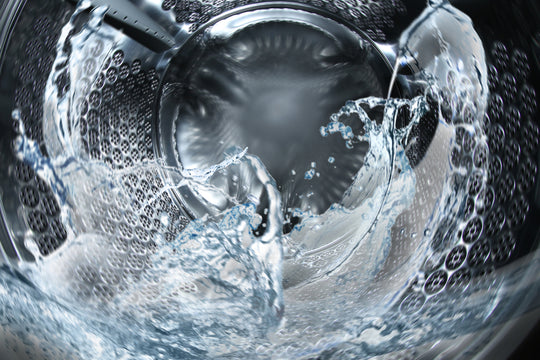Are you tired of your water bill going through the roof every time you run your washing machine? Have you ever wondered where all that water goes and how you can reduce your usage?
Well, fear not, fellow laundry lovers, we've got some fast facts coming your way!
In this article, we'll take a deep dive into the world of washing machine water usage, and trust us; it's not as dry as your clothes on laundry day. We'll give you the inside scoop on how to save water and how to choose the best washing machine for you and your family.
So, grab a cup of coffee, put on your favorite pair of socks, and let's get started!
How Much Water Do Washing Machines Use?
Yes, washing machines are a staple in many households, and we all know how important they are in keeping our clothes clean and fresh. However, have you ever wondered how much water they actually use?
Water Usage of Top-Loading Washing Machines
Top-loading washing machines are the traditional choice for many households - especially those with more than a few kiddies and perhaps some furry friends, which add to the laundry pile. They are known for their simplicity and affordability, and the massive loads of clean washing they can churn out.
However, they are also known for their high water usage. On average, top-loading washing machines use around 150 liters of water per load. This means that if you do laundry once a week, you could be using around 8,000 liters of water per year - just for your washing machine.
Water Usage of Front-Loading Washing Machines
Front-loading washing machines are gaining popularity in recent years, and for good reason. Not only are they more energy-efficient, but they also use less water than top-loading washing machines. (They’re also easier to hide away beneath kitchen counters if you don’t have a dedicated laundry area.)
On average, front-loading washing machines use around 50 - 90 liters of water per load. This means that if you do laundry once a week, you will be using between 2600 - 4500 liters of water per year for your front-loading washing machine.
For a more in-depth comparison of front loaders vs. top loaders, read our article How much water do washing machines use per load?
Additional Factors that Affect Water Usage
Several factors can affect the water usage of washing machines.
Obviously, one of the most significant factors is the size of the washing machine. Larger washing machines typically use more water than smaller ones, so it is important to choose a washing machine that is appropriate for your household's needs.
Another factor that affects water usage is the age of the washing machine. Older washing machines tend to use more water than newer models, so if you have an older washing machine, you may want to consider upgrading to a newer, more efficient model.
Finally, the type of fabric being washed can also affect water usage. Heavier fabrics, such as denim and towels, require more water to fully clean and rinse, while lighter fabrics, such as silk and chiffon, require less water.
How to Reduce Washing Machine Water Usage
While washing machines can be significant water consumers, there are several steps that you can take to reduce their water usage. These include:
- Only running full loads: Running a full load uses less water than running multiple smaller loads.
- Using high-efficiency machines: High-efficiency machines use less water and energy than traditional machines.
- Choosing the right cycle: Most newer machines have water-saving cycles that can significantly reduce water usage.
- Reusing water: You can reuse water from your washing machine for other purposes like watering plants or flushing toilets.
By following these steps, you can significantly reduce your washing machine water usage and save money on your water bill.
Did you know?
Defy’s 10 kg SteamCure™ Front Loader washing machine takes water saving to the next level! It is the most energy-efficient option available in the market, boasting an impressive A+++ Energy Rating. The use of steam technology reduces water consumption, putting less strain on the machine's motor.
Consequently, this leads to lower energy consumption and shorter cycles, which not only saves time but also contributes to a more sustainable environment, one load at a time.
Wash Away the Water Blues
Indeed, washing machine water usage is a significant concern for many households. But, by understanding the factors that affect water usage and taking steps to reduce it, you can save money and help conserve water. That’s a win-win!
Choose the right washing machine for your household, and use it wisely to keep your clothes clean and fresh while being environmentally conscious. We hope that this article has been informative and valuable, and we encourage you to share it with others who may find it useful.


